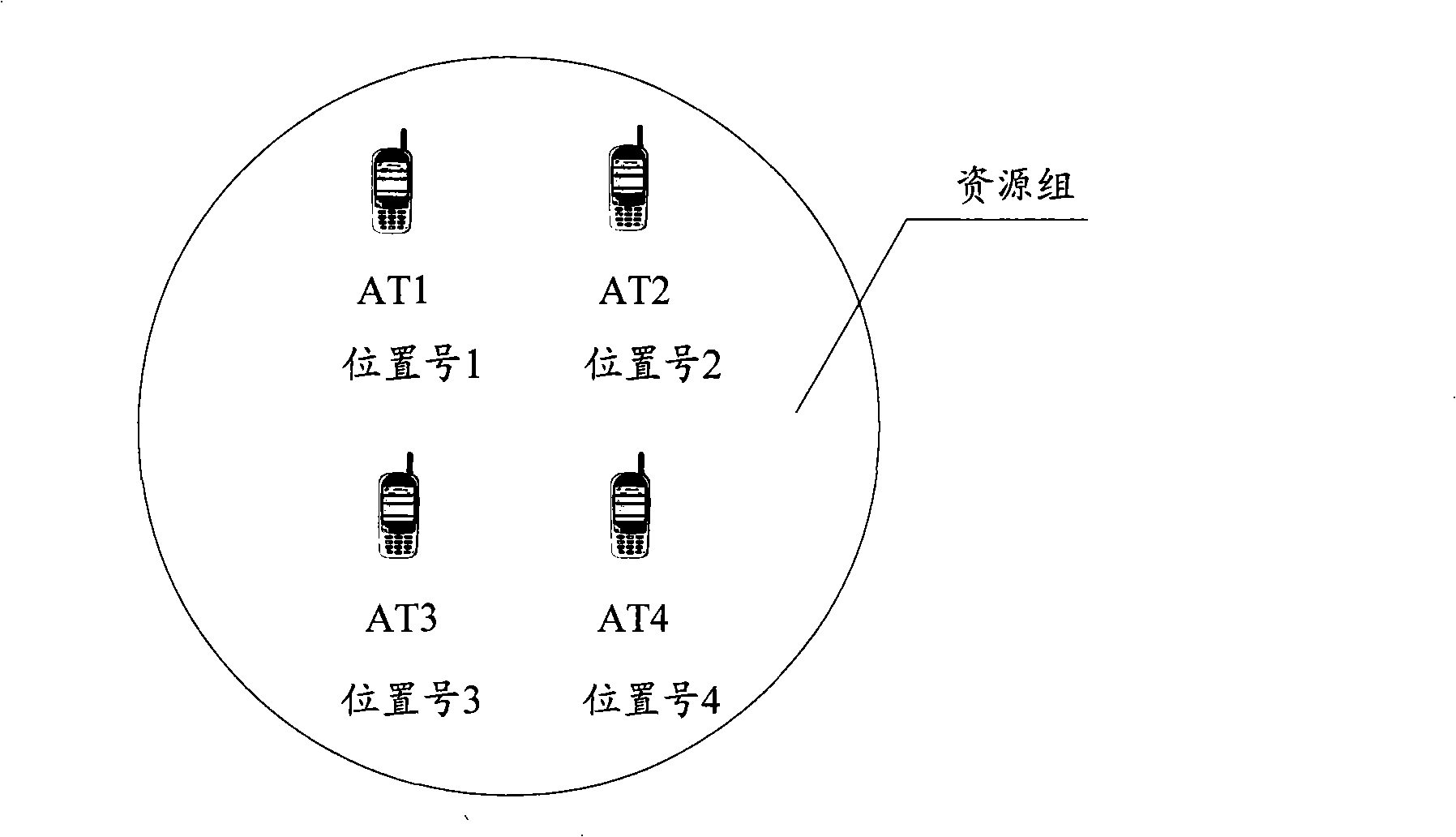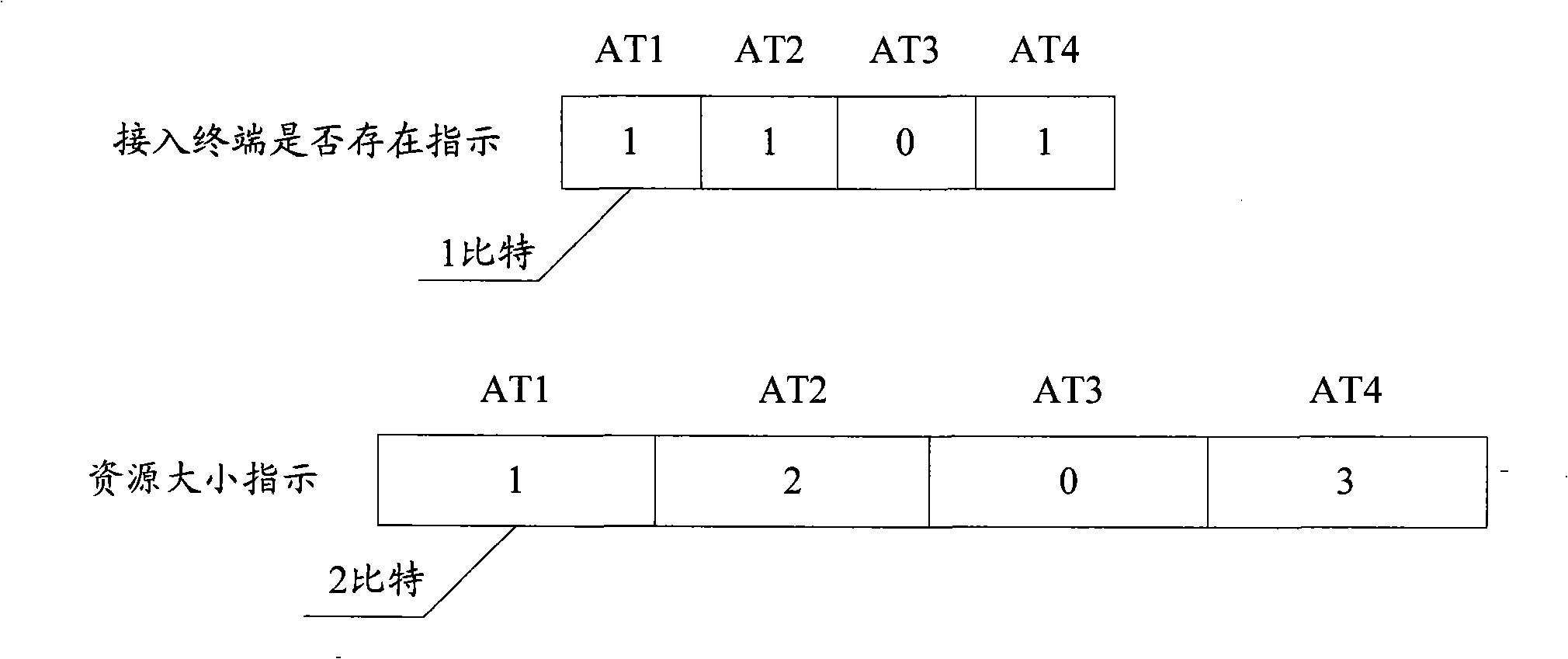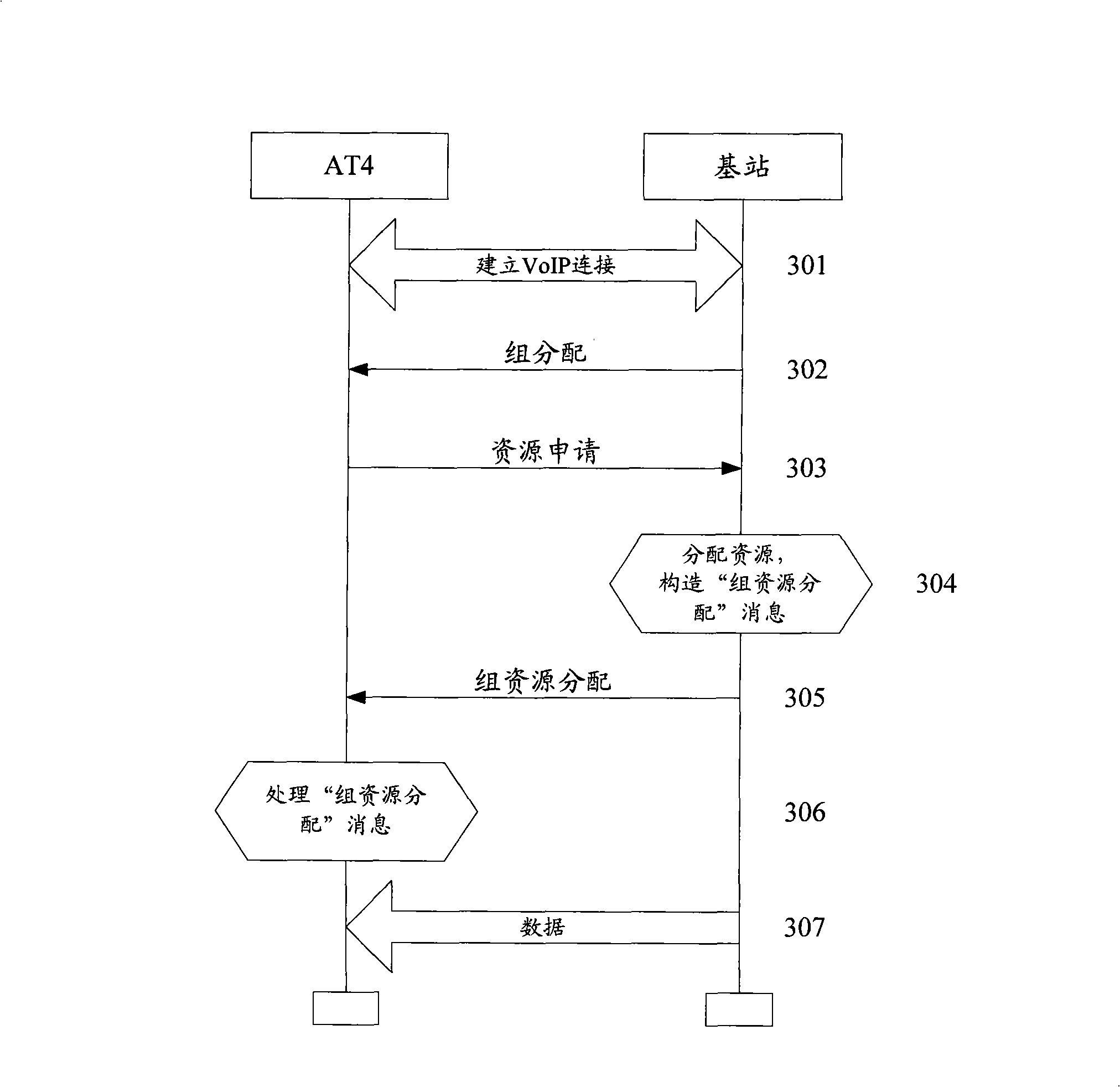Resource allocation method
A resource allocation and resource technology, applied in the field of mobile communication, can solve the problems of increased signaling and inability to meet low delay, achieve the effect of low delay, reduce signaling interaction, and reduce the time for resource allocation
- Summary
- Abstract
- Description
- Claims
- Application Information
AI Technical Summary
Problems solved by technology
Method used
Image
Examples
Embodiment Construction
[0016] The core idea of the present invention is that the base station organizes a plurality of access terminals for real-time services into a group, and reserves a part of time-frequency resources for the group, and the base station allocates resources for the access terminals in units of groups.
[0017] Specifically include the following steps:
[0018] 1. The base station organizes multiple access terminals that start real-time services in the same sector into a "resource group".
[0019] Of course, the base station can establish multiple "resource groups" in the same sector, and assign a "group number" to each "resource group" in order to distinguish each "resource group".
[0020] 2. In the "resource group", the base station assigns each access terminal a "location number" in the group.
[0021] The access terminals in the "resource group" occupy the resources in the group according to the order of the "position number".
[0022] 3. The base station reserves time-fre...
PUM
 Login to View More
Login to View More Abstract
Description
Claims
Application Information
 Login to View More
Login to View More - R&D
- Intellectual Property
- Life Sciences
- Materials
- Tech Scout
- Unparalleled Data Quality
- Higher Quality Content
- 60% Fewer Hallucinations
Browse by: Latest US Patents, China's latest patents, Technical Efficacy Thesaurus, Application Domain, Technology Topic, Popular Technical Reports.
© 2025 PatSnap. All rights reserved.Legal|Privacy policy|Modern Slavery Act Transparency Statement|Sitemap|About US| Contact US: help@patsnap.com



